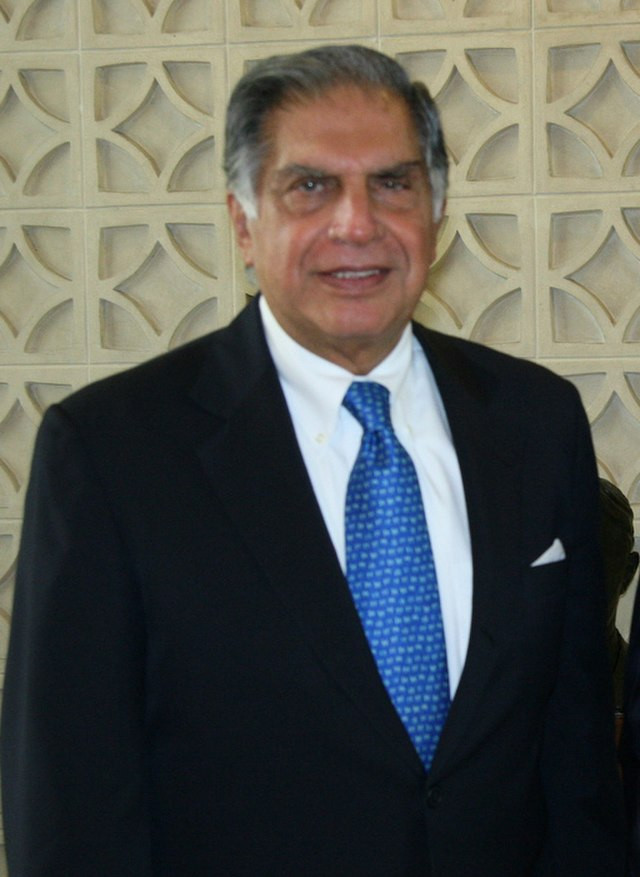Ratan Tata, the former chairman of the Tata Group who played a pivotal role in transforming the Indian conglomerate into a global business powerhouse, has passed away at the age of 86. Tata Sons confirmed his death in a statement on Wednesday, describing Tata as a "friend, mentor, and guide" whose leadership has left an indelible mark on both the company and the nation.
Tata, who was undergoing treatment for age-related medical conditions at Mumbai's Breach Candy Hospital, led the Tata Group for over two decades, steering it through a period of unprecedented growth and global expansion. His death marks the end of an era for India's oldest and most prestigious business house. "It is with a profound sense of loss that we bid farewell to Mr. Ratan Naval Tata, a truly uncommon leader whose immeasurable contributions have shaped not only the Tata Group but also the very fabric of our nation," the Tata Group said in its statement.
Prime Minister Narendra Modi paid tribute to Tata on social media, calling him "a visionary business leader, a compassionate soul, and an extraordinary human being." Modi added, "He provided stable leadership to one of India's oldest and most prestigious business houses. At the same time, his contribution went far beyond boardrooms." Modi's comments echoed the sentiments of many who admired Tata not only for his business acumen but also for his philanthropic efforts that aimed to uplift society.
Ratan Tata's journey with the Tata Group began in 1961, after he graduated from Cornell University with a degree in architecture. He took over the reins as chairman of Tata Sons in 1991, succeeding his uncle J.R.D. Tata, at a time when India was opening its economy to the world. One of his first significant moves as chairman was to streamline the group's operations by enforcing retirement ages for senior executives and promoting a younger generation to leadership roles.
Under Tata's visionary leadership, the Tata Group embarked on a series of high-profile acquisitions that put Indian businesses on the global map. The conglomerate purchased British tea company Tetley in 2000 for $432 million, followed by the acquisition of Anglo-Dutch steelmaker Corus in 2007 for $13 billion-the largest takeover by an Indian company at the time. In 2008, Tata Motors acquired the iconic British luxury car brands Jaguar and Land Rover from Ford for $2.3 billion, marking another milestone in the group's global expansion strategy.
Despite these major successes, Tata's tenure also included ambitious projects that faced significant challenges. The launch of the Tata Nano in 2009, touted as the world's cheapest car, was a bold attempt to make automobiles affordable for the masses in India. However, the Nano struggled with safety issues and marketing missteps, leading to its eventual discontinuation in 2018. Yet, Tata's vision for affordable transportation underscored his commitment to innovation and social impact.
Ratan Tata's leadership was not without controversy. The most notable was his public feud with Cyrus Mistry, who succeeded him as chairman of Tata Sons in 2012. The bitter dispute culminated in Mistry's ouster in 2016, with allegations from both sides about mismanagement and interference. Despite the turbulence, Tata briefly returned as interim chairman before retiring from active involvement in the company in 2017, when Natarajan Chandrasekaran was appointed chairman.
Tata was known for his modest lifestyle, never marrying, and dedicating much of his wealth to philanthropic causes. About two-thirds of Tata Sons' share capital is held by philanthropic trusts that fund various social, educational, and cultural initiatives in India. His commitment to giving back was recognized with the Padma Vibhushan, India's second-highest civilian honor, awarded to him in 2008.
Even after stepping down from the leadership of Tata Sons, Ratan Tata continued to influence India's startup ecosystem as an investor, backing a wide range of companies, including digital payments platform Paytm, electric vehicle manufacturer Ola Electric, and beauty services provider Urban Company. His strategic investments have helped shape the landscape of Indian entrepreneurship, fostering innovation and growth across diverse industries.
Beyond the business world, Tata's impact on India's aviation sector is also noteworthy. Under his leadership, Tata pioneered commercial aviation in India with the launch of Tata Airlines in 1932, which later became the national carrier, Air India. In a full-circle moment, the Tata Group regained control of Air India in 2021, further cementing its legacy in the industry. The group's partnership with Singapore Airlines to launch Vistara, a full-service carrier, underscored Tata's enduring influence in aviation.
Industrialist Harsh Goenka summed up the sentiment of many when he referred to Tata as a "titan" of Indian industry, whose legacy will be felt for generations to come. The Tata Group today comprises nearly 100 companies operating in sectors as diverse as steel, automotive, power, and information technology, employing more than 350,000 people globally.






